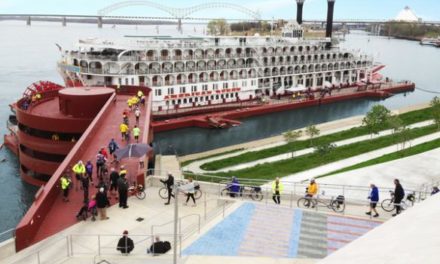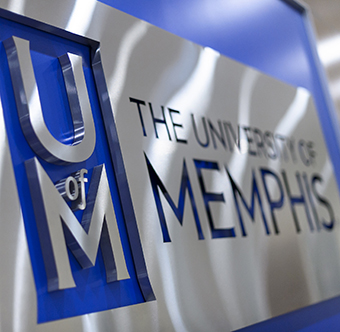I have to say, it is great to see cranes, cement trucks and construction on the UT-Baptist Research Park.
The great recession that brought about the national quagmire in the banking and commercial real-estate sectors, made it very difficult for the construction industry in Memphis. Perhaps a symbol of a return to normalcy, a lot of media attention has been paid to the Memphis Specialized Laboratory now under construction on the site. While the coverage has been good, nothing has really taken a complete look at what this facility can mean long-term to the Memphis bioscience landscape.
First a few facts about what is being built.
Construction of the $22 million, 26,000-square-foot Memphis Specialized Laboratory facility is made possible through a combination of public and private funding, including a State of Tennessee grant, Federal New Market Tax Credits, local bank financing, philanthropy, and land on the research park. Completion of the facility is targeted for spring 2013. Actual construction of the building is expected to be completed at the end of 2012. It will open for business after completing the FDA certification and conditioning. When completed, the facility will feature 18 labs specially-designed for the testing and commercialization work that companies need to do to get products approved by the U.S. Food and Drug Administration (FDA). It will be the only commercial Good Laboratory Practices (GLP) specialty lab facility in Memphis and the region.
To some, this may sound like just another science lab. For the industry, this facility is about making it faster and easier for products in the lab to make it through to the marketplace and the bedside. That makes Memphis a destination for research, for product development, for companies, and for talent. This facility can be a critical component to attract and retain nationally recognized researchers and companies interested in moving products efficiently from the lab, through regulatory agencies, to the market. It is also an operating business, with near 30 employees at maturity.
This lab will become a foundational resource for the local bioscience business and entrepreneurial communities. Much of the local product development and research that will take place in the lab will expedite and localize the path to FDA approval for local companies with new products in development, primarily for orthopedics, vaccine research and development, and pharmacology research. Most companies do not have the resources or the internal demand to justify their own laboratory of this caliber and specialization, so they send their work elsewhere. Our initial focus is to develop the capabilities within the laboratory to retain a portion of the estimated $3-$5 million in annual research spending that goes outside the region in order to complete FDA-required laboratory studies by Memphis area companies.
Beyond existing businesses, we have commercializable research that spins out from both the excellent clinical care community, and the Universities. They too need a facility where their potential new products can be tested, proven, and the commercialization process can be supported. This facility contributes to a total entrepreneurial ecosystem consisting of existing industry and lab scientists, early-stage capital, mentoring and accelerators, the Regional Biocontainment Lab and the UT Pharmacy School next door, and the resources of the Memphis Bioworks Incubator – effectively creating a complete suite of biomedical new business offerings. A more convenient and more complete path to FDA approval for local initiatives will save time and save lives.
The Memphis Specialized Laboratory will also be a model of “green construction” and a showcase for energy sustainability. The facility will incorporate several energy saving and environmentally sensitive features and is designed to be LEED-certified with natural ventilation, open space, and quality environments inside and out. It will minimize site impact through storm water design, heat island mitigation and light pollution reduction. The signature feature of the Research Park will be the Specialized Laboratory’s green roof – a roof that is actually covered with grass, landscaping and walkways, and built at a grade in which it serves as a large, open, multipurpose space that will be a central focal point for all the additional campus buildings. The green roof will be a visible and prominent feature of the architecture, and environmental performance will be a key driver of the architectural form. The entire Research Park is being designed as a progressive showcase for Memphis, and this facility is a big part of that goal.
With every new facility, every new idea emerging from our research labs, every new connection between our bioscience institutions, every new job created, and every new investment, the Memphis bioscience development and entrepreneurial opportunities grow. Perhaps more than any other facility in the community, the Memphis Specialized lab will have an impact at every level.




